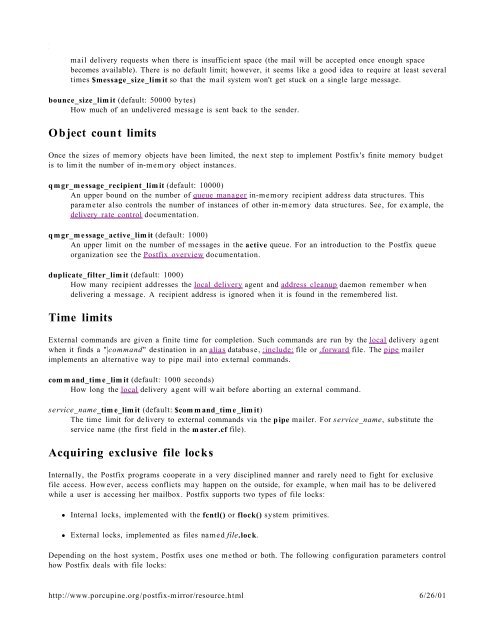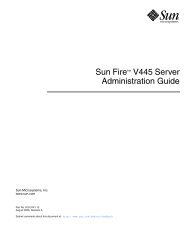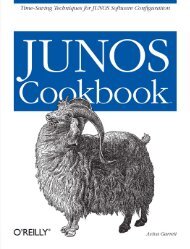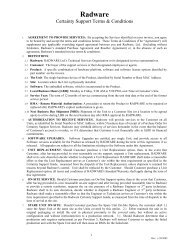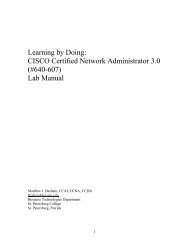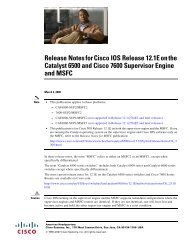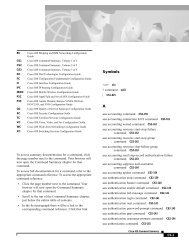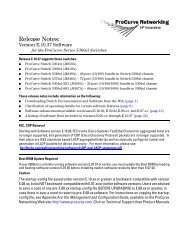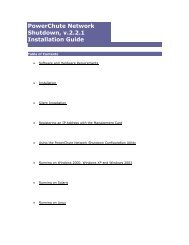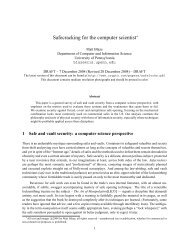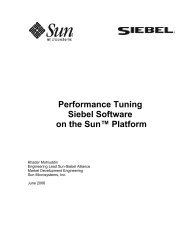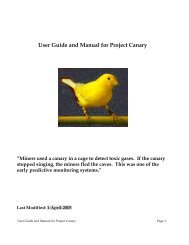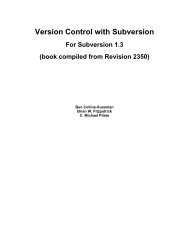Postfix Overview - Introduction - SCN Research
Postfix Overview - Introduction - SCN Research
Postfix Overview - Introduction - SCN Research
Create successful ePaper yourself
Turn your PDF publications into a flip-book with our unique Google optimized e-Paper software.
<strong>Postfix</strong> Configuration - Resource Controls<br />
mail delivery requests when there is insufficient space (the mail will be accepted once enough space<br />
becomes available). There is no default limit; however, it seems like a good idea to require at least several<br />
times $message_size_limit so that the mail system won't get stuck on a single large message.<br />
bounce_size_limit (default: 50000 bytes)<br />
How much of an undelivered message is sent back to the sender.<br />
Object count limits<br />
Once the sizes of memory objects have been limited, the next step to implement <strong>Postfix</strong>'s finite memory budget<br />
is to limit the number of in-memory object instances.<br />
qmgr_message_recipient_limit (default: 10000)<br />
An upper bound on the number of queue manager in-memory recipient address data structures. This<br />
parameter also controls the number of instances of other in-memory data structures. See, for example, the<br />
delivery rate control documentation.<br />
qmgr_message_active_limit (default: 1000)<br />
An upper limit on the number of messages in the active queue. For an introduction to the <strong>Postfix</strong> queue<br />
organization see the <strong>Postfix</strong> overview documentation.<br />
duplicate_filter_limit (default: 1000)<br />
How many recipient addresses the local delivery agent and address cleanup daemon remember when<br />
delivering a message. A recipient address is ignored when it is found in the remembered list.<br />
Time limits<br />
External commands are given a finite time for completion. Such commands are run by the local delivery agent<br />
when it finds a "|command" destination in an alias database, :include: file or .forward file. The pipe mailer<br />
implements an alternative way to pipe mail into external commands.<br />
command_time_limit (default: 1000 seconds)<br />
How long the local delivery agent will wait before aborting an external command.<br />
service_name_time_limit (default: $command_time_limit)<br />
The time limit for delivery to external commands via the pipe mailer. For service_name, substitute the<br />
service name (the first field in the master.cf file).<br />
Acquiring exclusive file locks<br />
Internally, the <strong>Postfix</strong> programs cooperate in a very disciplined manner and rarely need to fight for exclusive<br />
file access. However, access conflicts may happen on the outside, for example, when mail has to be delivered<br />
while a user is accessing her mailbox. <strong>Postfix</strong> supports two types of file locks:<br />
• Internal locks, implemented with the fcntl() or flock() system primitives.<br />
• External locks, implemented as files named file.lock.<br />
Page 2 of 3<br />
Depending on the host system, <strong>Postfix</strong> uses one method or both. The following configuration parameters control<br />
how <strong>Postfix</strong> deals with file locks:<br />
http://www.porcupine.org/postfix-mirror/resource.html<br />
6/26/01


